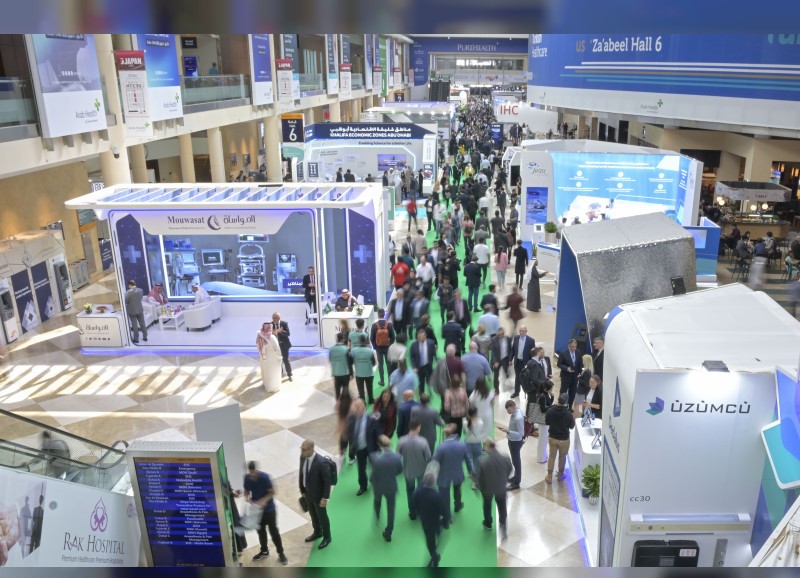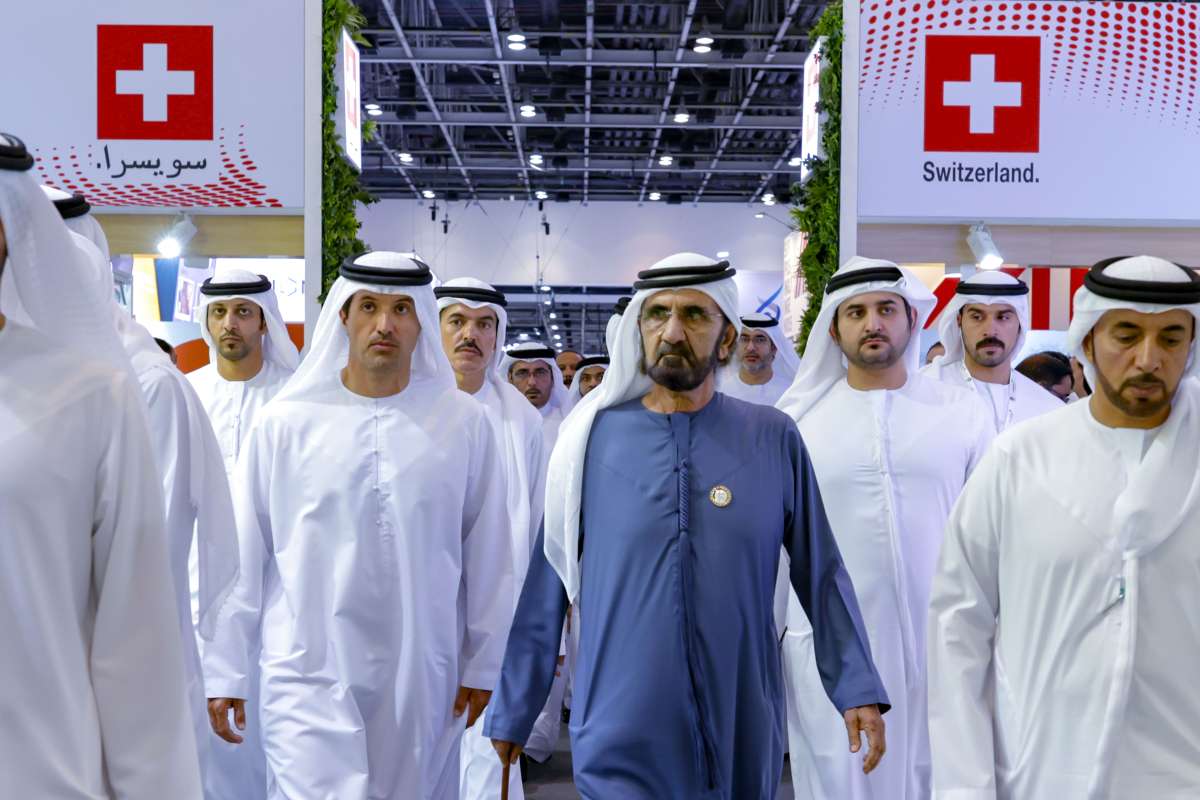A new feature of the 2024 edition of Arab Health is the Smart Hospital and Interoperability Zone in partnership with Cleveland Clinic Abu Dhabi….reports Asian Lite News
Arab Health 2024, the Middle East’s largest healthcare event, will return from 29th January to 1st February 2024, focusing on exploring the future of healthcare and the groundbreaking impact of new technologies across the entire medical industry.
A new feature of the 2024 edition is the Smart Hospital and Interoperability Zone in partnership with Cleveland Clinic Abu Dhabi, which will provide visitors with an immersive journey with live demonstrations illustrating how multiple technologies seamlessly interoperate with state-of-the-art medical equipment to improve the overall patient experience.
Positioned within the Healthcare Transformation sector, the Zone will feature four demonstration rooms, including a labour, delivery and neonatal room, giving visitors a step-by-step overview of the latest technologies utilised during birth, including electronic fetal monitoring, ultrasonography, blood pressure screening, and maternal/fetal pulse oximetry.
In addition, an operating room, intensive care unit, and emergency room will also be on show, providing a unique platform for equipment manufacturers, e-health solution providers, cybersecurity experts, AI specialists, and digital health disruptors to showcase their solutions and products.
Ross Williams, Exhibition Director for Informa Markets, said, “Arab Health 2024 will unveil unprecedented global advancements from within the industry by launching a series of new features and zones showcasing the cutting-edge innovations that are changing the future of patient care.
“Our inaugural Smart Hospital and Interoperability Zone is a shining example of what the future of the healthcare industry could look like, as well as revealing technologies already trending around the world.”
Each room will feature technologies from globally renowned companies such as Baxter International, a market leader in medical equipment manufacturing; Nihon Kohden, Japan’s leading manufacturer, developer and distributor of medical electronic equipment; world-renowned GE Healthcare; and Nasco Healthcare, the healthcare solutions training provider, amongst others.
A dedicated Content Theatre will provide a platform for exhibitors to deliver a range of scientific and educational sessions and detailed insights into biomedical engineering, patient care, cybersecurity and robotic surgery.
Other features at Arab Health 2024 include the Transformation Zone, which will consist of a series of talks from experts addressing topics such as nanomedicine, AI, and robotics, a range of product showcases, as well as the popular Innov8 competition, which will see 24 health tech startups from around the world pitch groundbreaking concepts and innovative ideas in a bid to be crowned winner on day three.
A recent addition to the exhibition is the inaugural Cre8 competition, which will target the next generation of healthcare professionals. The one-day event challenges participating students in the UAE to conceptualise, innovate, and devise a solution for a genuine healthcare issue, all within the confines of an imaginary budget of AED 100,000. Open to all universities and schools in the UAE, the competition aims to promote innovation, inspire entrepreneurship, and tackle healthcare challenges head-on.
The Start-Up Zone will feature an exclusive platform for SMEs to display their latest healthcare innovations. This year will have an international remit with companies from the UAE, Kuwait, India, Hong Kong, Germany, Netherlands, and Norway participating.
Arab Health 2024 is expected to welcome a global audience with over 3,450 exhibitors and over 110,000 healthcare professional visits from 180 countries. The event will take place over an extended area at the Dubai World Trade Centre, contributing significantly to the increase in exhibitors.
Medical professionals attending Arab Health 2024 will have access to 10 Continuing Medical Education (CME) conferences in the areas of total radiology, surgery, emergency medicine and critical care, diabetes, obstetrics and gynaecology, orthopaedics, quality management, public health, infection control and Central Sterile Supply Department (CSSD).










